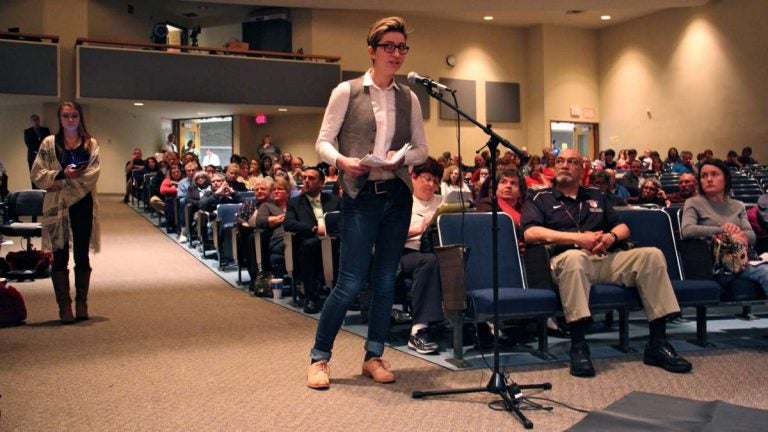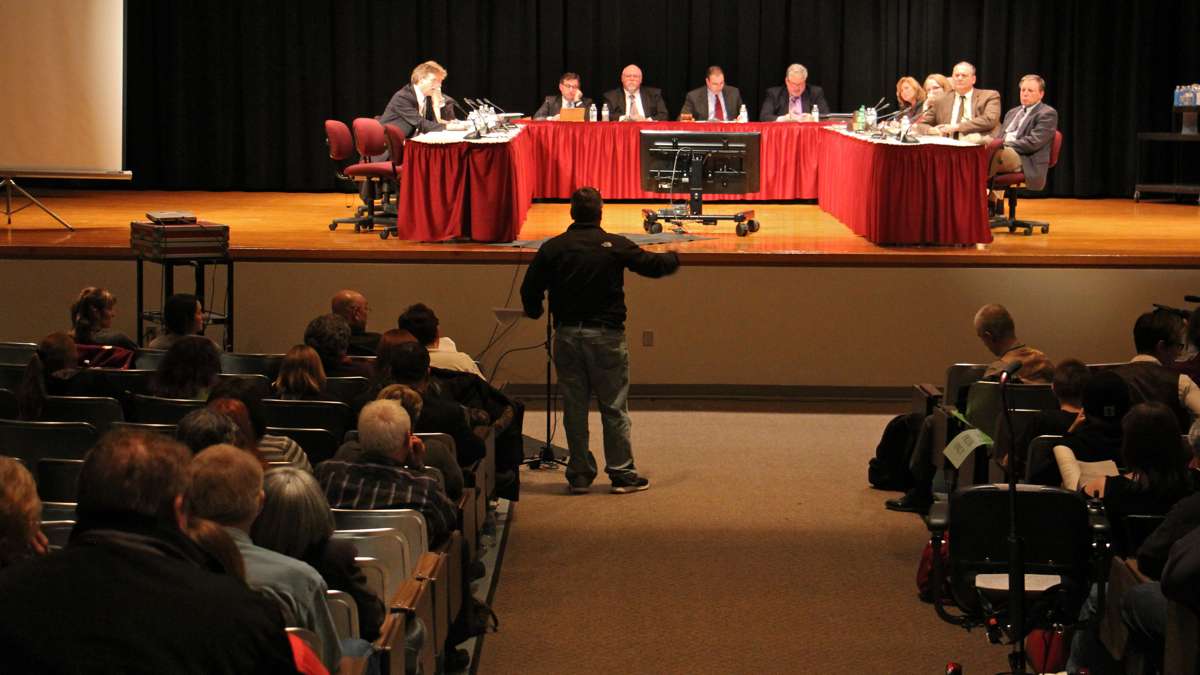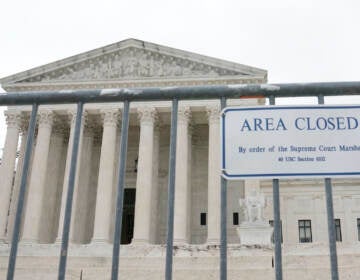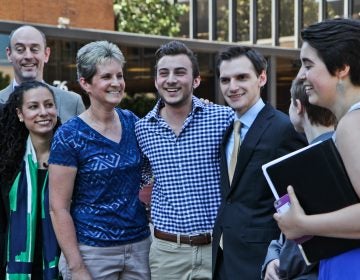Supreme Court rejects appeal over Pa. school’s transgender bathroom policy
The justices on Tuesday rejected an appeal from students who argued that allowing transgender students to use the same facilities violated their right to privacy.

Students testify in support of the Boyertown Area School District's policy of allowing transgender students to use locker rooms and restrooms that correspond to their gender identity. Four students sued the district, saying their privacy was violated when a transgender boy was allowed to use the same locker room. (Emma Lee/WHYY)
Updated: 5:57 p.m.
—
The U.S. Supreme Court will not take up a challenge to a Pennsylvania school district’s policy allowing transgender students to use bathrooms and locker rooms that correspond with their gender identity.
In 2017, a student using the pseudonym Joel Doe sued the Boyertown Area School District, which straddles Berks and Montgomery Counties, alleging that the policy violated his right to privacy, and also violated Title IX protections against discrimination on the basis of sex. Other students later joined the case.
The justices on Tuesday rejected the students’ appeal, leaving in place earlier federal appeals and district court rulings that held the school district’s position.
In that earlier ruling, written by Judge Theodore McKee, the court concluded that “the presence of transgender students in the locker and restrooms is no more offensive to Constitutional or Pennsylvania-law privacy interests than the presence of the other students who are not transgender.” The panel of judges also ruled that the school district has a “compelling interest” to protect transgender students from discrimination in light of the “extraordinary social, psychological, and medical risks” they face.
“Inclusive education for students, staff, and the community can only be successful when the Boyertown Area School District community feel that each person is genuinely a part of the school district,” said Superintendent Dana T. Bedden in a statement. “Creating a place where everyone feels welcome will require an open and honest discussion about differences where everyone has a voice, and institutional respect for people of all backgrounds and abilities. In inclusive schools, the establishment of such a climate benefits everyone by fostering an environment where our students and their families are valued.”

Boyertown’s policy of evaluating student requests to begin using bathrooms based on their gender identity on a case-by-case basis, and its efforts to provide single-user bathrooms, changing stalls and showers for anyone who desires privacy, also undermined the plaintiff’s allegations of harm, according to the appellate opinion.
“We are obviously disappointed that the Court hasn’t chosen to fix the substantial problems with the privacy violations occurring at this time,” said Jeremy Samek, senior counsel with the Independence Law Center, a religious liberty group representing the student plaintiffs. He said he was confident the country’s highest court would eventually take up a case on the topic.
The plaintiffs had been requesting a preliminary injunction and damages, and have the option of returning to argue their case in district court. Samek declined to say if his clients would pursue that option.
LGBTQ advocates cheered the Supreme Court’s rejection of the case, saying it strengthened existing trans-inclusive bathroom policies across jurisdictions in the Third Circuit.
“Throughout the Commonwealth, Pennsylvania public schools have been looking at this case as the bellwether for student inclusion,” said Jason Landau Goodman, executive director for the Pennsylvania Youth Congress, an organization advocating for LGBTQ youth.
School districts in Lower Merion and Philadelphia are among the those to have independently implemented trans-inclusive policies for single-sex facilities.
Earlier this year, a Honesdale High School student filed a complaint with the U.S. Department of Education against the Wayne Highlands School District, in Wayne County, equating using the same restrooms as a transgender peer with sexual harassment.
—
The Associated Press contributed to this report.
WHYY is your source for fact-based, in-depth journalism and information. As a nonprofit organization, we rely on financial support from readers like you. Please give today.




